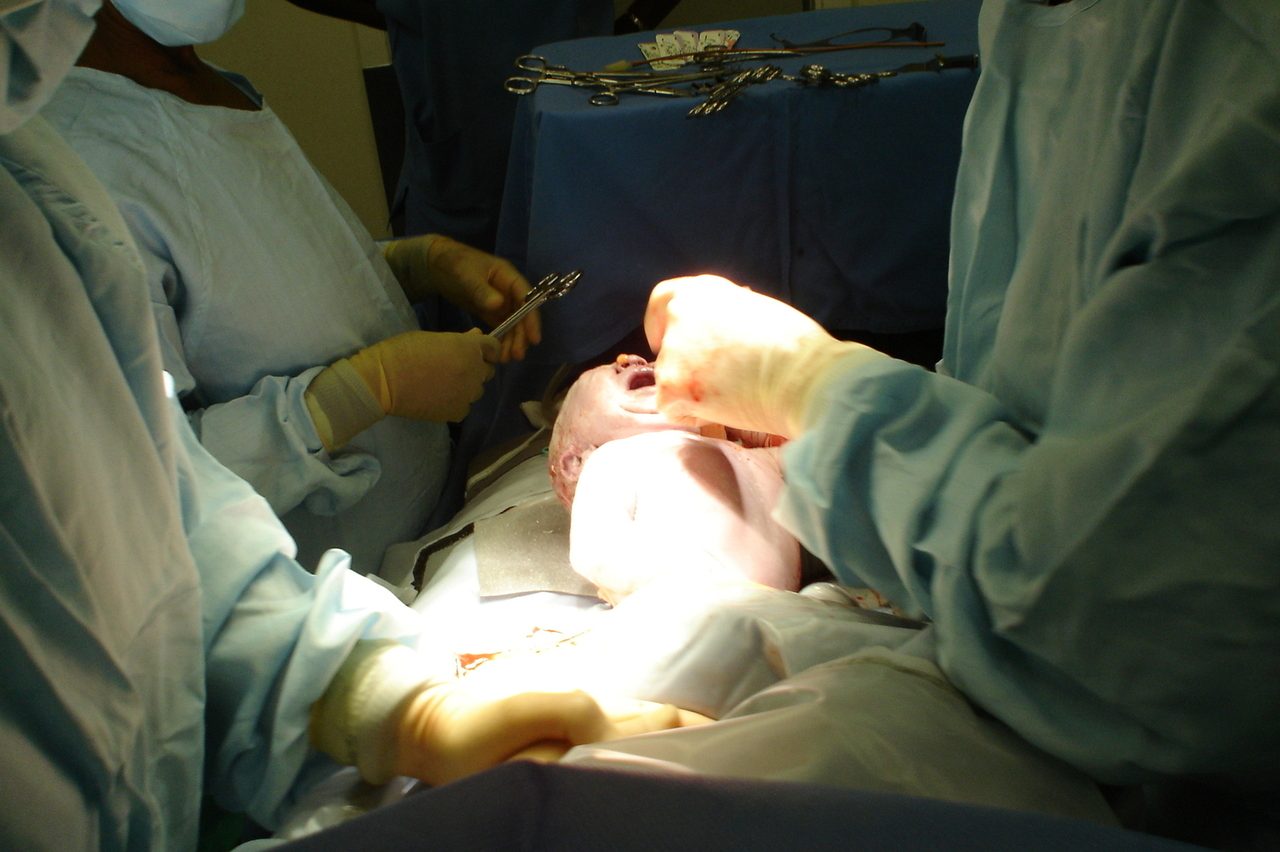Further Reading: Poverty | Environment | Quest for Peace | Effects Of Conflict And War

Adequate Healthcare Should Be Accessible To Everyone
The Wisdom Trust believes in a world where everyone has access to the best healthcare available when they need it. We are committed to play our part, and will work with and support any individuals or organisations involved in improving global healthcare.
Modern science has made huge progress over recent years to improve healthcare and yet if we are going to reach the health targets set by The United Nations at the turn of the century huge challenges still need to be solved.

9 Facts Which Provide A Snapshot Of The State Of Modern Global Health.
Child Mortality
1) Under-five mortality has improved dramatically – yet each and every day in 2016, 15,000 children died before reaching their fifth birthday.
Critical Disease Prevention
2) After unprecedented global gains in malaria control, progress has stalled because of a range of challenges, including a lack of sustainable and predictable funding.
3) The probability of dying from diabetes, cancer, cardiovascular disease and chronic lung disease between ages 30 and 70 dropped four percentage points, to 18% in 2016 down from 22% in 2000.

Health Provision For Poorer Nations
4) Adults in low and lower-middle-income countries faced the highest risks – almost double the rate for those in high-income countries. However, the total number of deaths from non-communicable diseases is increasing due to population growth and ageing.
5) A lack of skilled personnel is hampering the reduction of deaths of new mothers, particularly in poorer nations. In 2015, an estimated 303,000 women died due to complications in pregnancy or childbirth: 99% of these deaths were in low- and middle-income countries.
Air Pollution
6) Meeting cleaner air targets is also a struggle. More than half of the urban population was exposed to outdoor air pollution levels of at least 2.5 times above the safety standard set by the World Health Organisation (WHO), while estimates show nine out of ten people worldwide breathe polluted air.

Global Healthcare
7) Perhaps most crucially, the goal of achieving universal healthcare for all is still some way off. At least half of the global population do not have full coverage for essential health services.
8) In 2010, some 808 million people – 11.7% of the world’s population – spent at least 10% of their household income paying for health services. And an estimated 97 million people were impoverished by out-of-pocket healthcare spending in 2010.
9) Norway spends three times as much per person on health as Greece, but both countries have about the same (health-adjusted) life expectancy. And in a more extreme example, The USA spends more than five times as much per person as Estonia, yet both countries have similar life expectancies.

14 More Startling Facts About Global Health In The 21st Century!
Tuberculosis And Dementia Each Kill £1.5m People Yearly
Whilst dementia receives a lot of attention, tuberculosis, a bacterial disease that affects the lungs, kills the same amount of people globally yet doesn’t receive the same level of coverage.
Furthermore, potential treatments being developed for Alzheimer’s and dementia outnumber treatments for tuberculosis by more than three to one.

Life Expectancy At Birth Has Increased Globally By 6 Years Since 1990
A baby born in 2012 could expect to live to 70 years on average – ranging from 62 years in low-income countries to 79 years in high-income countries. Life expectancy at birth is based on the death rates across all age groups in a population in a given year – children and adolescents, adults and the elderly.

Around 6.6 Million Children Under The Age Of 5 Die Each Year
Almost all of these young lives could be saved if they had access to simple and affordable interventions such as exclusive breastfeeding, inexpensive vaccines and medication, clean water and sanitation.
The World Health Organisation (WHO) is working with governments and partners worldwide to deliver integrated, effective care and strengthen health systems, both of which are crucial to saving children’s lives.

Pre-Term Birth Is The Leading Killer Of Newborn Babies Worldwide
Every year 15 million babies – about 10% of all babies – are born pre-term (born alive before 37 weeks of pregnancy). Pre-term birth complications cause more than one million deaths each year. More than three quarters of these babies’ lives could be saved with simple and cost-effective care.

Cardiovascular Diseases Are The Leading Causes Of Death In The World
Around 3 in 10 deaths globally are caused by cardiovascular diseases – diseases of the heart and blood vessels that can cause heart attacks and strokes.
At least 80% of premature deaths from cardiovascular diseases could be prevented through a healthy diet, regular physical activity and avoiding the use of tobacco.

Most HIV/AIDS Deaths Occur In Africa
Around 70% of all HIV/AIDS deaths in 2012 occurred in sub-Saharan Africa. Globally, the number of people dying from AIDS-related causes is steadily decreasing from a peak of 2.3 million deaths in 2005 to an estimated 1.6 million in 2012.
HIV testing and counselling uptake has improved and access to antiretroviral therapy has increased, however many people living with HIV in low- and middle-income countries still do not know their HIV status.

Every Day, About 800 Women Die Due To Complications Of Pregnancy And Childbirth
Maternal mortality is a health indicator that shows very wide gaps between rich and poor, both between countries and within them. The World Health Organisation (WHO) works to improve maternal health by assisting countries to improve care before, during and after childbirth.

Mental Health Disorders Such As Depression Are Among The 20 Leading Causes Of Disability, Globally
Depression affects around 300 million people worldwide and this number is projected to increase. Fewer than half of those people affected have access to adequate treatment and healthcare.

Tobacco Kills Nearly 6 Million People Each And Every Year
More than 5 million of those deaths are the result of direct tobacco use while more than 600,000 are the result of non-smokers being exposed to second-hand smoke. Unless urgent action is taken, the annual death toll could rise to more than 8 million by 2030.

Almost 1 In 10 Adults Has Diabetes
Almost 10% of the world’s adult population has diabetes, measured by elevated fasting blood glucose (≥126 mg/dl). People with diabetes have increased risk of heart disease and stroke. Deaths due to diabetes have been increasing since the year 2000, reaching 1.5 million deaths in 2012.

Nearly 3,500 People Die From Road Traffic Accidents Every Day
Road traffic injuries are projected to rise as vehicle ownership increases due to economic growth in developing countries.
Strong action to improve road-use policies and enforce road-safety laws is needed to avert this rise in injuries and deaths.

Noncommunicable Diseases (NCDs) Caused 37% Of Deaths In Low-Income Countries In 2015, Up From 23% In 2000
In low-resource settings, healthcare costs for cardiovascular diseases, cancers, diabetes or chronic lung diseases – the four main causes of NCD deaths – can quickly drain household resources, driving families into poverty.
Globally, 70% (nearly 40 million) deaths in 2015 were due to NCDs. NCDs are often associated with older age groups, but 43% of all NCD deaths in 2015 occurred before the age of 70.

Over 330 Million People Worldwide Suffer From Asthma
Every day more than 600 people die prematurely due to asthma. But asthma can be controlled and many of these deaths could be prevented.

Globally, Every Year, An Estimated 300-600 Million People Suffer From Malaria.
Malaria Kills One Child Every 30 Seconds And About 3,000 Children, Daily. Over one million people die from malaria each year, mostly children under five years of age, with 90% of malaria cases occurring in Sub-Saharan Africa.
Globally, every year, an estimated 300-600 million people suffer from malaria. But many of these young lives could be saved with medication and simple nets to protect them while they sleep.

What Will We Do?
A) Learn And Collaborate Together.
The Wisdom Trust will use its online learning resources and The Wisdom Trust Community, together with a series of seminars, workshops and other events, to increase awareness about the big issues affecting the future of our planet.
B) Understand How We Can All Make A Difference.
We will also provide simple advice to people on how they can make a difference to help protect the environment and to live a healthier lifestyle.
C) Provide Funding To Help Protect Our Environment.
We will make donations from our funds to support charitable causes which promote our key objectives, especially those which help deliver better healthcare worldwide.
Our goal is to support programs which improve healthcare in communities on every continent, especially those with some of the world’s poorest people.

D) Connecting Different Communities Across The Globe.
We will also strive to help people embrace and celebrate the rich and colourful tapestry of contrasting societies and communities that inhabit our planet and to assist different communities in connecting with each other so they can collaborate in a process of learning about each other.
This, we hope, will lead to collaboration in a process of learning about each other so that we can all be stronger together.
E) Working Together To Make Things Better.
The Wisdom Trust is committed to working effectively with other individuals and organisations to help fund programs which expand or improve healthcare provision across the world so everyone can benefit from it, now and in the future.

Will you rise to the challenge?
Join Our Campaign!
We will make a difference and in just a few click of your mouse you too could be playing your part in helping to make the world a better place for everyone, regardless of age, background, religion, race or culture – or even where they live.
Get Involved Today: Click Here To Sign Up

How Can You Help
Members can offer their support by signing-up, then a) logging in every day; b) voting for their favourite cause; c) learning and sharing wisdom in the Wisdom Community; d) perhaps even shopping online through the website; e) spreading the word by inviting all their friends, family and colleagues to join us; f) and by contributing their own personal Pledge For Peace on our website.
By joining the Wisdom Trust as either a member or as one of our registered charitable causes, you become part of a network that is creating positive change right across the globe, for underprivileged individuals, groups and the sustainability of our planet by unlocking the collective power of wisdom and knowledge for all.

Join Us Today!
Joining The Wisdom Trust is very simple and completely free for both individuals and organisations.
We will make a difference and in just a few click of your mouse you too could be playing your part in helping to make the world a better place for everyone, regardless of age, background, religion, race or culture – or even where they live.

The Wisdom Trust – Making It Happen!!
Supporting Charities, Families, Education, Communities and Business.
Start Small! – Think Big! – Make A Difference
Helping you LIVE with a bit more Wisdom.
Learn | Inspire | Volunteer | Empower
